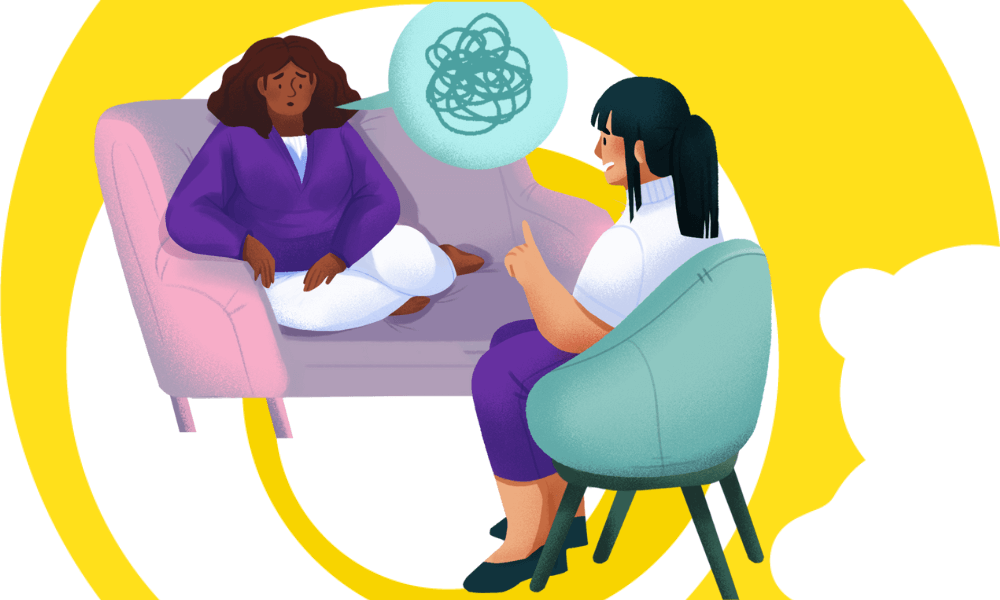Diary
Start Mental Health Conversations and Reduce Stigma
- 05th Aug 2022
Dear Diary,
Our mind and body are one entity. The mind does not function without the body and vice-versa. Likewise, our mental and physical health affect each other. Our mental health affects our life spans as well.
Serious mental health issues inhibit the average life span between 49-60 years. Additionally, people with depression have a 40% higher risk of developing heart disease.
Introduction:
Our mental health handles our emotions, thinking, learning, self-esteem, and adaptability. Likewise, our mental health is a key component in maintaining relations and welfare. Many people face mental health concerns from time to time.
A mental health concern becomes a disorder when symptoms affect your day-to-day functioning. It can cause problems in your daily life, school or work, or your relationship with others. Mental illness refers to health conditions that affect your mood, thinking, and behavior. Some of the most common mental health disorders are anxiety and depression.
In most cases, a combination of medication and psychotherapy controls the symptoms. Psychotherapy is often known as talk therapy. Psychotherapy is the counseling form of treatment with a licensed therapist. The therapist considers many other factors before defining the course of counseling. The patients discuss their concerns and the therapist help in resolving them. Understand more about psychotherapy here.
Stigma and discrimination:
-
Discrimination: discrimination is an unjust or biased treatment of people. When someone’s bias stems from your illness, they are discriminating against you.
-
Stigma: stigma marks shame or disgrace with a particular situation, circumstance, or quality. When someone discriminates against you and shames you for being ill, it is a stigma.
No matter the size, the stigma and discrimination perpetuated makes the situation worse. People feel isolated, marginalized, and anxious about how the world will treat them. Many times, this makes people delay seeking treatment or acknowledge the problem’s existence.
But discrimination and stigma come from ignorance and fear of the unknown. Little knowledge and misleading and inaccurate facts contribute to the discrimination of people.
Researchers have pointed out that there are various kinds of stigma:
-
Public: discriminatory behavior of others towards mental illnesses.
-
Personal: shame and stigma that people with mental illness have about their condition.
-
Institutional: government and private policies that limit opportunities for people with mental illnesses.
When our family and friends are incapable of supporting us, it contributes to the stigma. In some ethnic-racial communities, there is a stigma attached to seeking support.
Some of the harmful effects of stigma are:
-
Lack of understanding, kindness, and support
-
Lesser opportunities in career, school, social groups, and activities
-
Bullying and physical violence
-
Inadequacies in governmental and private policies and health insurance
-
Feeling of failure
-
Trauma and stress
Let us start the conversation:
All mental health disorders are treatable, and people lead productive and fulfilling lives. But if they go untreated and unnoticed for a long, it takes time and becomes more severe.
There is a dire need to start the conversation around mental health and illnesses. Starting conversations around mental health helps normalize the disorders. It breaks the stigma and encourages people to seek support and medical attention.
Some of the ways we can normalize the mental health conversation:
-
Talk without stigma: When we are physically unwell and seek medical attention, we do not feel stigmatized or feel bad. Seeking a doctor or therapist because you are anxious or depressed is normal.
Being hesitant about mental illnesses adds to the notion of taboo and discrimination.
-
Educate yourself: Improve people’s perception of mental health issues through education. Educating about the issues helps us identify and spot early symptoms and signs. It helps in seeking help and support at the preliminary stages.
Knowledge about mental health illnesses creates less possibility of misinformation around the topic.
-
Be conscious of the language: Using positive words reduces negative stigma. By being aware of our language, we create a positive and safe space where people can communicate their feelings.
-
Encourage mental health evaluation: Seek evaluation of employees, family, and friends by certified mental health experts. They will be able to provide full reports to address the issues ad guide them to improve mental health.
-
Share personal experiences: Sharing experiences with others helps create sensitization about mental health. Besides, this will make people aware of different kinds of mental health issues. This also lets others know about your needs and how they can help you.
-
Hold seminars and meetings: Communication is the key to everything. Use channels and forums to talk about mental illnesses and how you need support in your journey. Contact experts who would take part in seminars and answer questions.
Conclusion:
It is hard for people to come forward and talk about mental health and their struggles. But discrimination and stigma make it more difficult for people to seek help.
Schools, offices, family, and friend circles are places where we spent most of our time. A safe space for conversation, support, and confidence help people express their concerns. People can seek expert advice and accommodations required to lead a healthy life.
So, if you are walking around with a cloud over your head, know that it is time to open your heart and speakeasy.
That’s all I have for now,
I will write to you soon.
Take care!
Recent Post
- Our Secret Way to Celebrate National Cocoa Day December 16, 2022
- Healthy Coffee: Your Coffee is Helping You October 14, 2022
- Sharpen the Brain: Top 6 ways to Improve Brain Health October 7, 2022
- Learn about Traveling this World Tourism Day September 30, 2022
- Let’s Talk about International Day of Peace September 23, 2022


